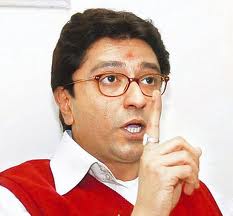
New Delhi, September 27: A Delhi court on Thursday asked police to lodge an FIR against Maharashtra Navnirman Sena chief Raj Thackeray for allegedly branding Bihar natives as infiltrators in Mumbai and threatening them to throw out of the state.
Metropolitan magistrate Neeraj Gaur's order came on a complaint by advocate Prem Shankar Sharma who said Thackeray's August 31 remarks, terming Bihar natives as infiltrators and threatening them to throw them out of Maharashtra, are provocative and anti-national, for which an FIR must be lodged against him.
In its action-taken-report over the complaint, the Delhi Police had earlier told the court that it was facing several legal hurdles in lodging the FIR against the MNS chief as neither the comments were made in the national capital nor the newspapers which carried them are printed here.
It had said neither the MNS office is situated in the jurisdiction of Subzi Mandi police station here nor any such statement has been made by Thackeray in a place under the jurisdiction of the police station. The investigating officer, however, had said the police was ready and willing to abide by the court's direction on the issue.
The police had also said "the news causing hurt to the complainant has been printed in Noida and Sahibabad, Uttar Pradesh. Hence, the complaint has been forwarded to SSP Ghaziabad for necessary action at their end."
Sharma had said in his complaint that "Thackeray's August 31 remarks that Bihar natives who have been living in Maharashtra, especially in Mumbai, shall be kicked out of the state, were defaming and his provocative statement is against national integration as the Indian Constitution has given all citizens the right to live anywhere in the country.
The MNS chief had allegedly made the remarks reacting to a media report that Bihar chief secretary Navin Kumar wrote to Mumbai Police Commissioner voicing displeasure over the arrest of a youth from Bihar for vandalising the martyr's memorial during the Azad Maidan protest on August 11 in Mumbai.
Thackeray was summoned by another court on August 30 in three different cases pertaining to attacks by MNS supporters on north Indian students, including those from Bihar, appearing for the railways' entrance exam in Mumbai on October 20, 2008.





Comments
Add new comment